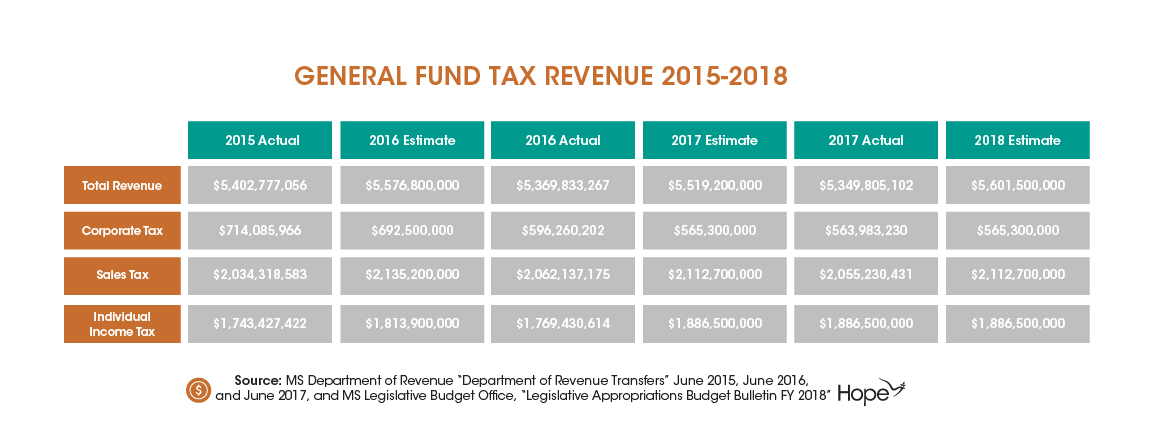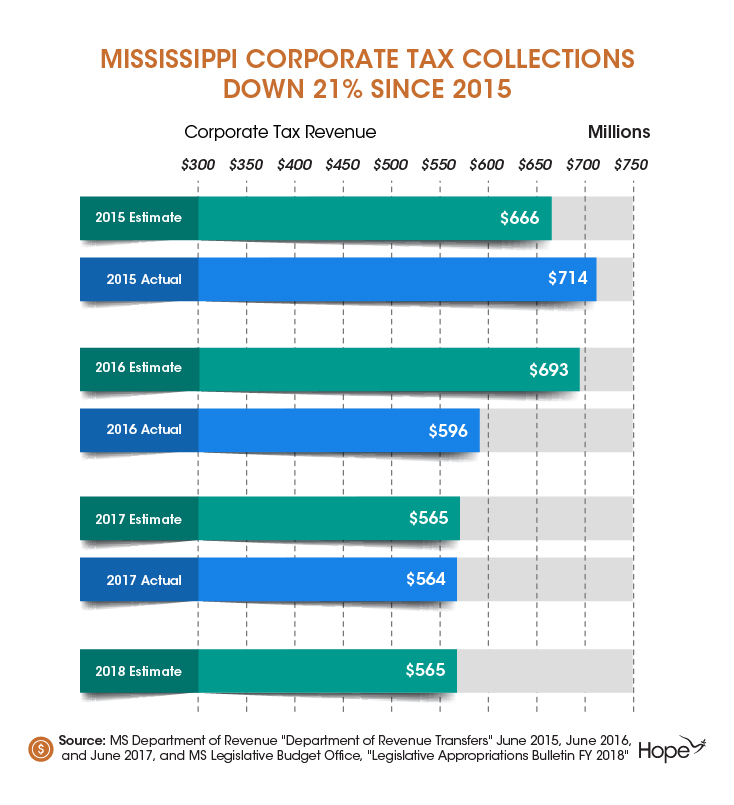Year Ends with $169 Million Shortfall before Major Tax Cuts Take Effect, Corporate Taxes Already Down 21% Since 2015
August 18th, 2017
Official numbers for the fiscal year that ended June 30 have been released and show that general fund tax revenues came in $169 million below estimate in 2017. This is the second year in a row that Mississippi has had a revenue shortfall in the triple digits. In 2016, revenue came in $207 million below estimate. The largest sources of the shortfall in 2017 were the individual income tax ($105 million) and the sales tax ($57 million), while the largest shortfall in 2016 came from corporate taxes at $99 million below estimate. See Table.
When crafting the 2017 revenue estimate, the revenue estimating committee took into account declining revenue, in addition to the 2016 shortfall of $207 million, and reduced its estimate. However, revenues still came in $169 million below the reduced sine dine estimate. Each year’s revenue estimate, first released in the fall before the legislative session, is revised near the end of the legislative session while the budget is crafted. This revised estimate is called the sine dine estimate and is the estimate from which appropriation levels are determined.
Compared year over year, 2017 corporate tax collections are down $32 million from 2016 when it was the largest source of the shortfall. All-in-all, corporate tax collections are down $151 million (21%) since 2015. See Chart.
Corporate tax collection did increase from 2010 until 2015; however, during that time, tax collections were recovering from the deepest lows of the “Great Recession.” In 2010, corporate tax collections fell to $403 million. When adjusted for inflation, 2017 corporate tax collections are still below 2008 (pre-recession) corporate tax collections.
The decline in corporate tax collections is troubling given the major corporate tax cuts passed in 2016 that will eliminate the corporate franchise tax. In 2016, franchise tax collections accounted for 65 percent of corporate tax collections. Under the law, the tax cuts will phase in over ten years beginning in 2018. The tax cuts will also phase out the lowest corporate and individual income tax bracket over five years, beginning in 2018, further reducing the corporate income tax.
Given reductions in spending and associated cuts to key services, the new tax cuts are unaffordable and make it even more difficult to invest in the types of structures that attract business and contribute to a strong economy. Mississippi’s competitiveness hinges on the quality of life in our state. When states invest in high-quality schools and keep higher education affordable, provide vital public health services and maintain safe roads and bridges, states reap the benefit through economic growth. Unfortunately, a cuts-only approach takes us further from that desired outcome.









